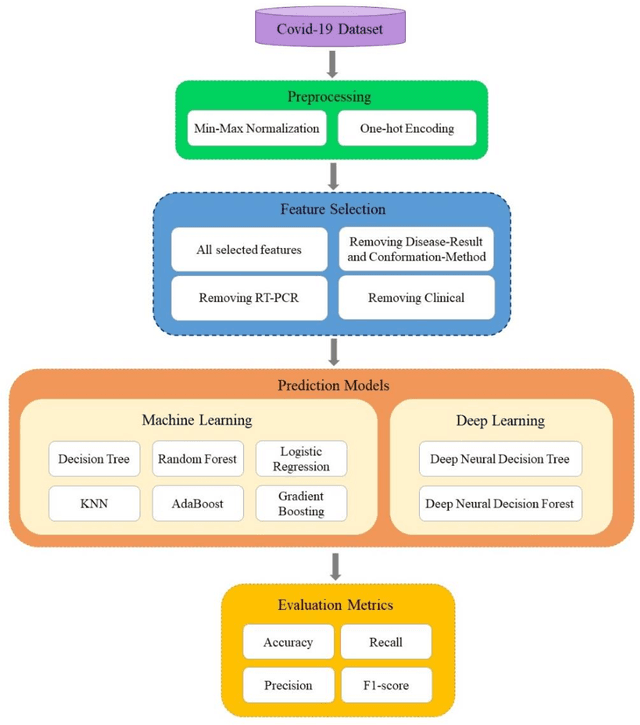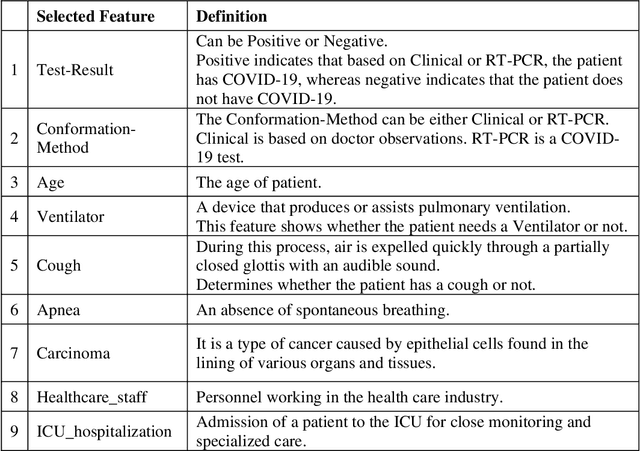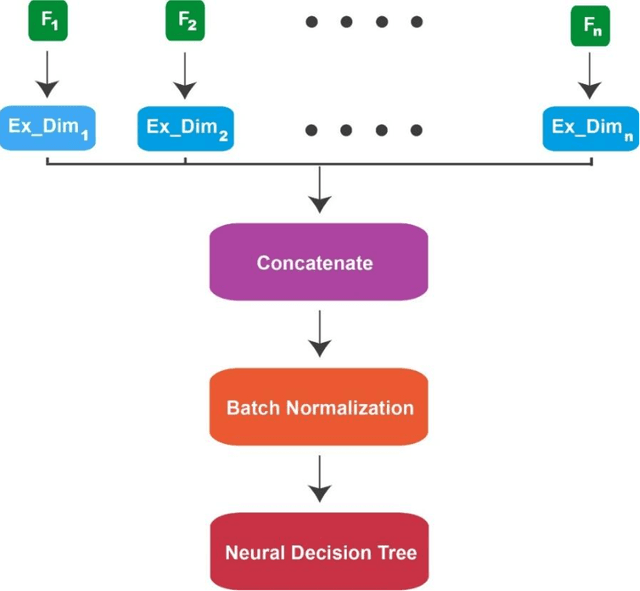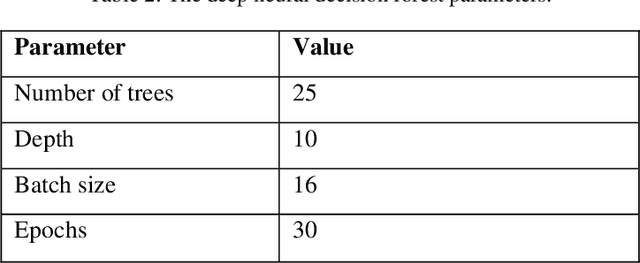Predicting Recovery or Decease of COVID-19 Patients with Clinical and RT-PCR Using Machine Learning Classification Algorithms
Paper and Code
Nov 23, 2023



The COVID-19 pandemic has disrupted the global economy and people's daily lives in unprecedented ways. To make appropriate decisions, it is necessary to diagnose COVID-19 rapidly and accurately. Clinical decision making is influenced by data collected from patients. With the aid of artificial intelligence, COVID-19 has been diagnosed quickly by analyzing symptoms, polymerase chain reaction (PCR), computed tomography scans, chest X-rays, routine laboratory blood tests and even cough sounds. Furthermore, these data can be used to predict a patient's morality, although there is a question about which data makes the most accurate predictions. Therefore, this study consists of two parts. Our first objective is to examine whether machine learning algorithms can predict the outcome of COVID-19 cases (recovery or death), based on the features present in the dataset. In the second part of the research, we investigated the impact of clinical and RT-PCR on prediction of recovery and decease to determine which one is more reliable. We defined four stages with different feature sets and use six machine learning methods to build prediction model. With an accuracy of 78.7%, random forest showed promising results for predicting death and recovery of patients. Based on this, it appears that recovery and decease of patients are predictable using machine learning. For second objective, results indicate that clinical alone (without using RT-PCR), trained with AdaBoost algorithm, is the most accurate with an accuracy of 82.1%. This study can provide guidance for medical professionals in the event of a crisis or outbreak similar to COVID-19.
 Add to Chrome
Add to Chrome Add to Firefox
Add to Firefox Add to Edge
Add to Edge